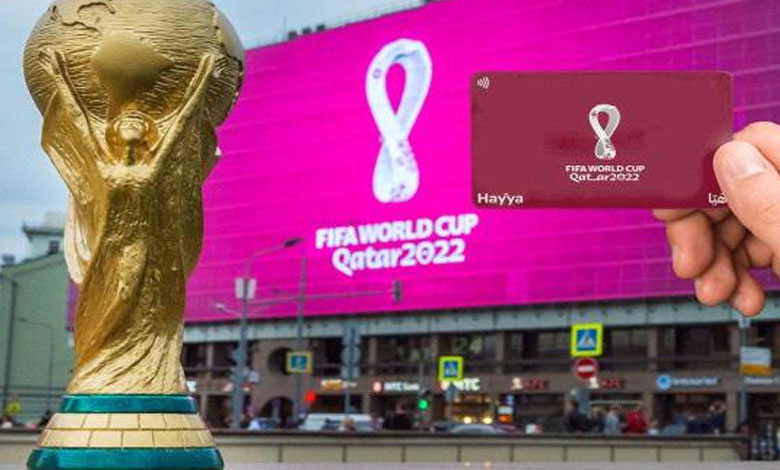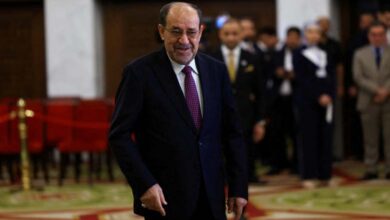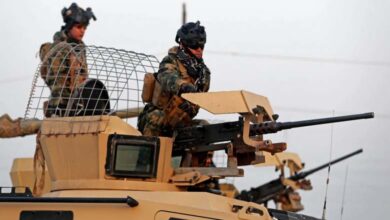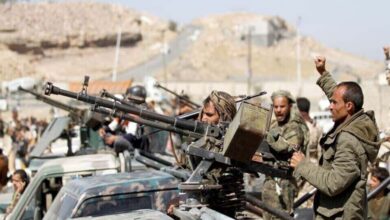Qatar threatens to revise its investments in London amid a dispute over advertising

Doha has hinted at a review of its investments in London in response to the City Transport Authority’s cancelation of Qatar’s advertisements on buses, trains and taxis due to issues related to the rights of workers at sports facilities and controls imposed by the Gulf emirate on the LGBT+ community, according to the Financial Times.
This is the first time Doha has published an investment document since it was subjected to a fierce campaign that preempted and continued during the World Cup.
This development indicates that Qatar has moved from defense to offense in the face of any criticism of its human rights record and to what extent it can engage in arm-twisting battles with its Western critics.
The threat to revise its investments in London against the backdrop of the advertising crisis seems to be a stern message to Western partners: Doha can hurt those who are too critical economically and it has huge investments abroad thanks to its financial arm and contributions and valuable partnerships in major global companies.
The advertising crisis warns of tension between Doha and London, the international financial center. These developments come at a time when Britain is facing a state of financial and political turmoil and has suffered to get out of the dilemma left by the 44-day whip of the shortest ruling in its history, led by Liz.
According to the Financial Times newspaper, the decision was prompted by concerns over Qatar’s stance on LGBT+ rights and the Gulf state’s treatment of migrant workers.
The decision angered Doha, which is mainly alarmed by criticism of its status as host of the World Cup.
In 2019, London Mayor Sadiq Khan asked the London Transport Authority to “review how it deals with advertising and sponsorship from countries that have laws against the LGBTI community.”
The request led to the suspension of new declarations from 11 countries, including Qatar, Pakistan, Brunei and Saudi Arabia.
However, the Transport Authority in London said on Friday that “some of Qatar’s advertisements have since been posted on the internet, despite the decision”, according to the newspaper.
However, the Authority decided to ban all advertising after European teams at the World Cup in Qatar were banned from wearing badges in support of LGBT+ rights.
The person participating in the Qatar Investment Review in London said that the Transport Authority, headed by Khan, contacted the World Cup Supervisory Authority and the Qatar Tourism Authority this week to inform them of the ban.
In response, Qatar is reviewing its current and future investments in London and is considering investment opportunities in other UK cities, he said.
The spokesman added that the Transport Authority’s ban on Qatar’s advertising was “interpreted as a message from the Mayor’s Office that Qatari business is not welcome in London,” according to the Financial Times.
So far, it is unclear what the potential impact of the Qatari decision will be on Doha’s investments in London.
“Over the past two decades, however, Qatar has become one of the largest investors in London through a $450 billion sovereign wealth fund.”
“In May, Qatar pledged to invest £10 billion over five years in the UK through QIA, including in technology, health care, infrastructure and clean energy sectors.”
QIA owns the Harrods department store in Knightsbridge, London’s tallest building, Shard, a co-owner of Canary Wharf, and the Gulf state owns the Chelsea Parks, Savoy and Grosvenor House hotels and a 20% stake in Heathrow Airport.
A spokesman for Khan said the Labor mayor did not participate in the day-to-day decisions about advertising on the city’s transport network.
A spokesman for the Transport Authority in London said it had provided “additional guidance to advertising and trademark partners” on ads accepted during the World Cup.
The Qatar Media Office and the Qatar Investment Authority declined to comment. But the person who participated in Qatar’s report said Doha considered the NFL ban “another blatant example of double standards.”
“The Transport Authority in London accepts the announcements from the UAE and Saudi Arabia, and it has many business interests in China, and there is no indication that these agreements with these countries have been withdrawn,” the source said, according to a Financial Times report.
He added that the dispute will not affect Qatar’s relationship with the Conservative-led government in Britain.
The United Kingdom has sought to secure long-term gas supplies from Qatar in the wake of the energy crisis caused by the Russian military operation in Ukraine.
Qatar’s energy sector plays a pivotal role in meeting the UK’s LNG needs. Doha supplies 20% of Britain’s consumption of this vital source of energy, whether at the individual or corporate level.
The UK is among the leading collaborators with Qatar, which owns the South Hawk gas terminal in Wales. Liquefied natural gas (LNG) is emptied in special containers and the site can accommodate one-fifth of Britain’s daily gas needs. The Qatari government is investing millions to increase this capacity by a quarter by 2025.
Qatar is the UK’s second-largest gas exporter, supplying 9% of its energy imports, which is required to power the heating of nearly one million British homes, according to the BBC.
Qatar launched a tourism advertising campaign in the UK ahead of the World Cup, focusing on London as it seeks to use the tournament to promote the nation.
The Welsh Football Association said on Friday that fans in Qatar were allowed to carry rainbow-colored flags and caps (symbolizing support for LGBT+ people) in stadiums hosting the World Cup after they had been previously confiscated at the entrance.
During her country’s match with Japan, German Interior Minister Nancy Faeser wore a homosexual support badge, shaped like a heart with rainbow stripes, in a promotion of inclusion and opposition to discrimination.
German players covered their mouths while taking a photo of the team on Wednesday ahead of a showdown with Japan in protest at FIFA’s decision to ban homosexual badges.
Seven European teams gave up plans to wear badges on the field a few days ago after FIFA threatened sanctions.
Qatari officials are increasingly alarmed by what they see as unfair criticism of the decision to grant Qatar World Cup hosting rights, especially from German officials including Faeser.
The World Cup, the first to be held in a Middle Eastern country, focused on LGBT+ rights in Qatar, which criminalizes homosexuality but some LGBT+ residents say they have more freedoms than their peers across the region.
A few high-profile incidents in which security officials banned ticket holders wearing LGBT+ badges from entering the World Cup stadiums have further fueled debate over what political symbols are allowed in the games.












